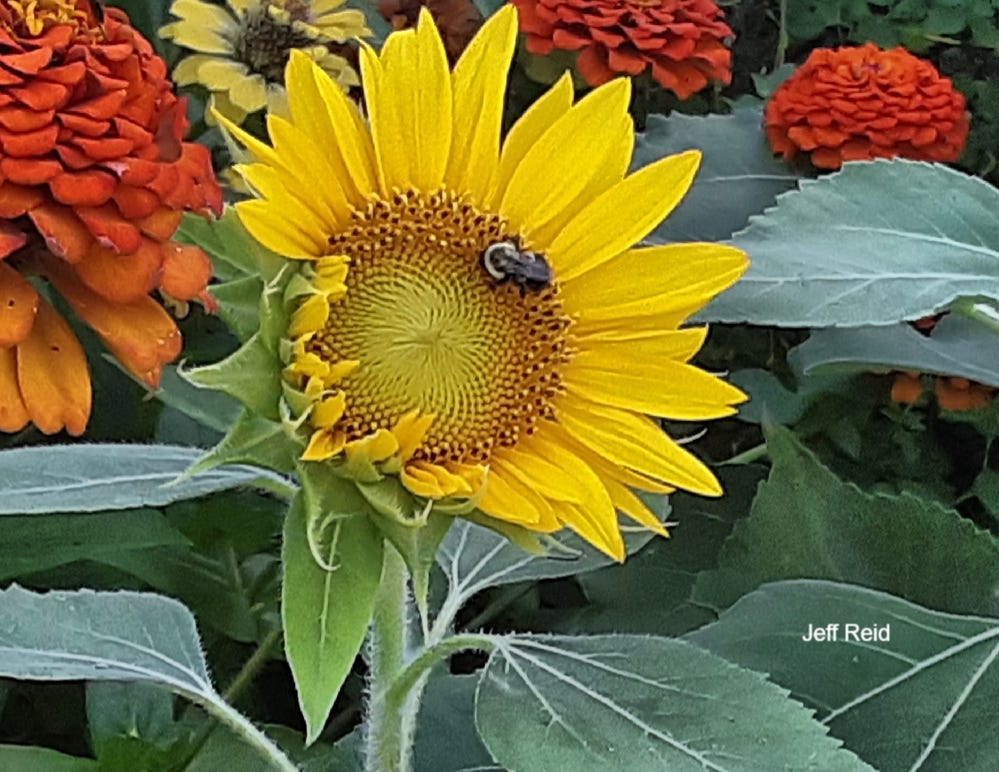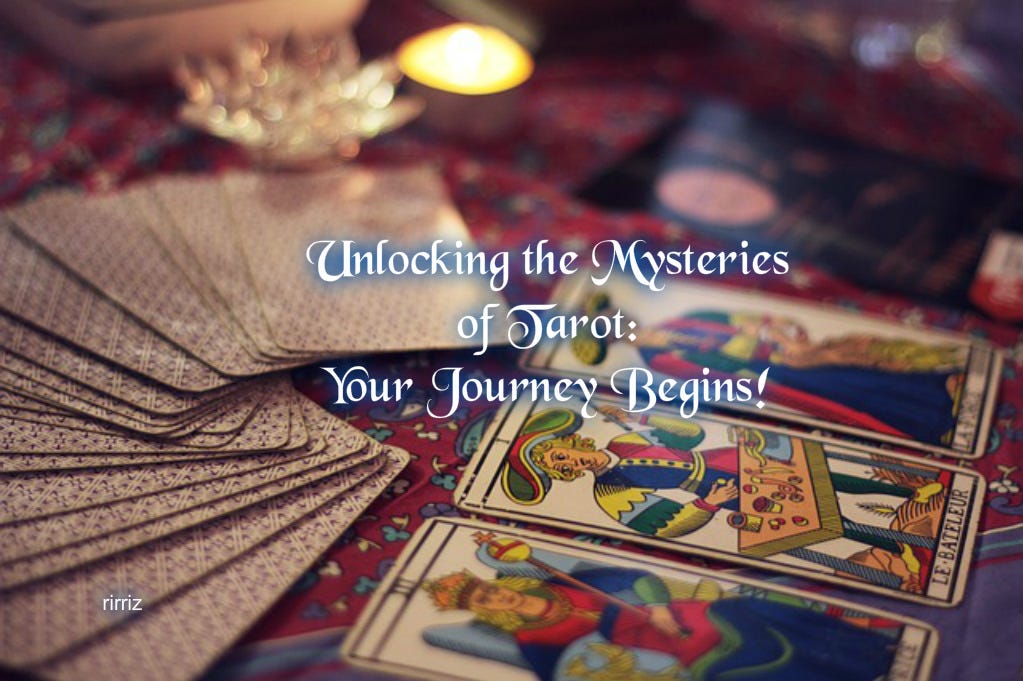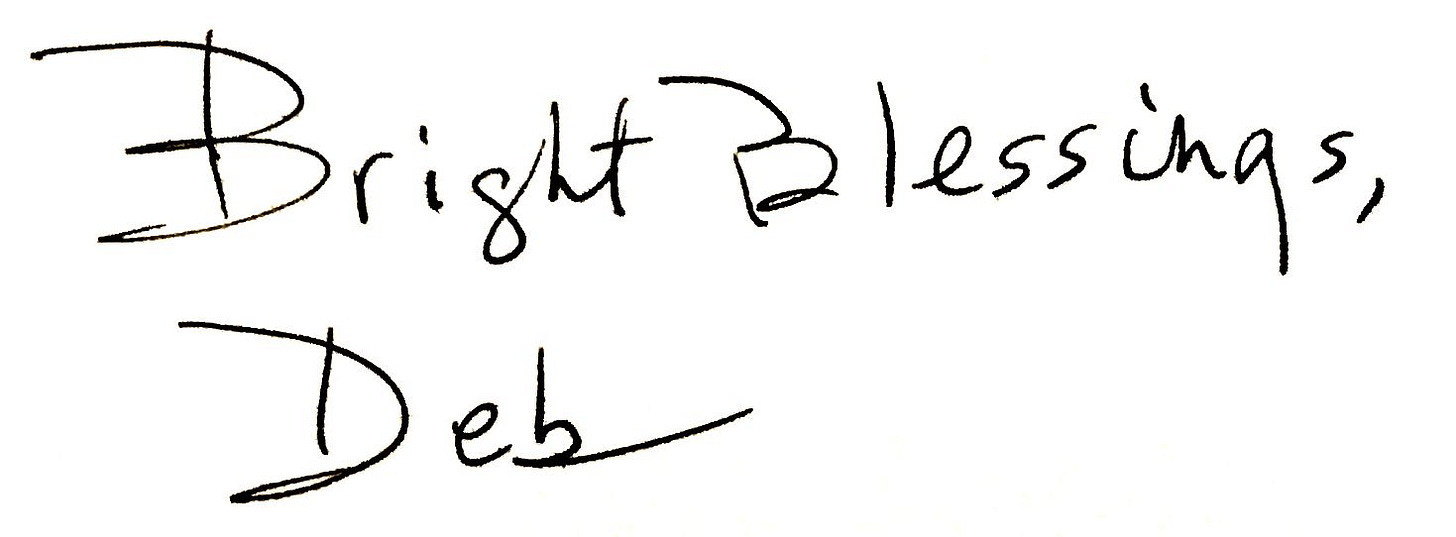The Sound of Silence- August 2023
Acoustic Ecology, Nature Meditation, Animal Guides Upcoming Course, Writing Update, & so much more!
Good afternoon!
Wait – before you roll your eyes about what I’ve written below, and say, “Deb’s at it again – meditate, meditate, meditate in silence!” bear with me. What I’ve written about in this newsletter is bigger than that, and has implications for all of us, and for the health of Mother Earth.
Have you ever come home from work to discover your electricity is off? No refrigerator or air conditioning running? Did the silence seem almost deafening? Was that little buzzing sound in your head overwhelming? Did your thoughts race toward the need to fill the silence, not only with the missing sounds, but with any sound?
Last week I clicked on a Facebook video showing an elk herd walking through a forest. Having spent an idyllic morning watching a similar scene in person in Rocky Mountain National Park, I opened the post, excited to observe the elks’ nearly-silent passage through the woods. Instead, a blaring cacophony of music assaulted my ears. I quickly scrolled on. Why, I wondered, did the poster need to fill the silence with noise, thus not allowing us to hear the natural elk sounds?
I keep a record of when I hear the first hoot from a barred owl in my neighborhood each autumn. That piercing call tells me the season is about to change and my town is about to quieten for the winter. As more land is cleared for development, the owls arrive later and later each year.
I’ve taken a deep dive recently into the fields of acoustic ecology, eco-acoustics, soundscape studies, and bioacoustics. These related concepts invite us to explore what sound – and noise – mean to all beings and to the planet.
These fields are not new, with pioneers such as R. Murray Schafer beginning his work in the 1960s. Schafer, a Canadian composer and environmentalist, created the World Soundscape Project, and popularized the term “acoustic ecology.” Gordon Hempton has created Emmy award-winning soundscape recordings that have been the subject of PBS documentaries. Through his “One Square Inch of Silence” project with the National Parks Service, he continues to push for no-fly zones in national parks, thus protecting park inhabitants from noise trauma.
“Silence is not the absence of something but the presence of everything,” Hempton says in an interview with The Sun magazine.
There becomes less space on earth every day free from human-made noise, and all this noise is a problem, say acoustic ecologists. Certainly, the problem partially focuses on the loss of natural-sound habitats for animals and plants, thus interfering with procreation. The issue is more complex than habitat loss, however. The problem also centers around the noise humans add to the environment that disrupts the natural rhythm and sounds and impacts the behaviors of beings who live in various areas.
Think of how the sonar of whales and dolphins is affected by boat motors, and how disoriented they become. Think of the terror birds and land animals must feel as airplanes fly over them, even in cities where they may have become somewhat acclimated to human noise over time.
Humans, too, of course, also are affected by sound, no matter where they live. I lived for a while in an old house on a main street. At first, my sleep was disrupted nightly as blaring sirens flew past my house. Eventually, I was able to sleep soundly through the noise, or so it seemed. Hempton’s research shows that, in fact, my sleep continued to be disturbed, just to a lesser degree such that I was not fully awakened.
Would you like to connect more deeply to the natural world? Would you like to, in some small way, lessen the impact of noise on the planet? Here's what I invite you to do:
Spend some time over the next few days simply paying attention to the sounds in your environment. I don’t mean only the refrigerator and air conditioning noises but the sounds of the television and your dinging cell phone, the click of your computer keys, the opening and closing of cupboard doors, the dog scratching, and conversations. The sounds your body makes – the swishing of your clothes against your skin, chewing, slurping coffee.
Keep a record of what you hear. Then, consciously choose which sounds you can reduce or eliminate for a few days, and pay attention to how you feel. More relaxed? Breathing more deeply? More attentive to what matters? Changing your relationship with time and how you interact with it?
Go outside at various times of the day and night over the next few days. Listen to the sounds around you. Traffic? Airplanes? Rustling leaves? Dogs barking? Crickets? Frogs? Birds? Can you identify species? Can you put your hand on a tree and hear its energy flowing?
Keep a record of what you hear. Pay attention to how the sounds you’re able to hear change and increase over time. Are you able to name bird calls? Hear leaves rustling? Vector sound locations? Develop a greater kinship with your animal and plant neighbors? Become curious about what they’re saying.
Try these exercises, and I think you’ll be surprised. I bet you’ll build a more connected relationship with the world around you. These ideas are working for me, as I continue to connect with animals and plants around me. Keep reading to see how my upcoming workshop may help you too.
Meditation Thoughts
This month, for our meditation, I invite you to visit Gordon Hempton’s website and listen to the recordings of nature sounds he has collected from around the world. Here’s the link: https://soundtracker.com/
If you missed my last newsletter, you can read it here.
UPCOMING COURSES!
Interpreting YOUR Personal Messages from YOUR Animal Guides
Tuesday, September 12, 2023
2:00-3:30 PM Section OR 8:00-9:30 PM Section EASTERN US Time
Taught via Zoom
https://debbowen.com/product-category/new-category/
Hawk flies in front of your car. Dragonfly lands on your shoulder. Fox stares at you on your morning commute. Squirrel has something to tell you. Cardinal pecks at your window. Suddenly you’re seeing Dolphin on television, on the internet, on magazine covers – everywhere! What are they telling you? Not information you can read in books or online, but messages they bring uniquely to YOU? You also know that there is one – maybe more – guide for you from the “animal kingdoms,” but you aren’t sure you know who, or don’t know how to connect with them. You’ll learn how in this information-packed course.
If I’ve completed an Animal Guides Report for you, and you’d like to delve more deeply into the meaning of your Guides, this course is for you too!
Important:
The deadline to register for this course is Friday, September 8 at 6:00 PM Eastern time
https://debbowen.com/product-category/new-category/
Deadline for ordering an Animal Guides Report: If you’d like me to complete a report for you to be used in the course, the deadline is Saturday, September 2 at 6:00 PM Eastern time. Here’s the link to order an Animal Guides Report:
https://debbowen.com/product/animal-guides-report/
Please note that I cannot guarantee delivery before the course if you order a Report after the deadline.
Unlocking the Mysteries of Tarot, my introductory Tarot course will be offered in October. Watch this newsletter or visit my website for details coming soon!
Book for the Month: Late Migrations
“A Natural History of Love and Loss” is the subtitle of this beautifully gentle, painful book by Margaret Renkl. Renkl braids together the stories of losses in her life, particularly the death of her mother, with an abiding understanding and love for the cycles of relationships and the natural world around her.
Written in brief essays, the book takes us through grieving the loss of love and grieving the pain of that loss in such a gentle, kind way, exploring both the losses of loved ones and the losses of birds and butterflies in our yard and in our world. The essays offer us a window into Renkl’s grief – and our own – in brief touchstones that allow us to approach, and then back away from, pain when it becomes too much to bear. She says, “For in both worlds – the natural one and our own – the shadow side of love is always loss, and grief is only love’s own twin.”
Beautifully illustrated by Billy Renkl, the author’s brother, Late Migrations is published by Milkweed Press. I recommend this book to you highly.
Writing Update
I’m excited about the works I have in progress, some of which I anticipate being published soon. In the meantime, you can view links to my published work on my website:
https://debbowen.com/author/
You also can click here to read my most recent creative nonfiction works, “Mending Nets” in Salvation South:
https://www.salvationsouth.com/mending-nets-north-carolina-barrier-island/?mc_cid=c4bb217ffc&mc_eid=fae2a9a622
And “A Talisman for Poseidon,” also in Salvation South:
https://www.salvationsouth.com/a-talisman-from-poseidon-hurricane-donna-1960/
Podcast
Deb’s Facebook Pages
Another way you and I can connect is through my Facebook pages. I’d be honored if you’d follow my pages. They are a great way to see up-to-the-minute news! I so hope you’ll LIKE and FOLLOW and feel free to comment and share posts!
Deb Bowen, Author
PsychicTeachers
Witches of the Shore
Just One More Thing Before You Go
“My ancestors wove the net of my life from the sea, knotting my days with twine strong as passion, weighting my weeks with lead sinkers heavy as grief, and charting my years with brightly colored glass floats as fragile as eternity.”
-From “Mending Nets” published in Salvation South by Deb Bowen, Author
Thank you!












This is beautifully written, very insightful, and full of helpful information. Thank you, Deb.
Thank you Deb.. it was wonderfully quiet when I visited you. I too, crave the quiet spaces, so I can begin to really hear myself, the flowers and all the beings who have been making sound since before we evolved. Have you read David Haskell's book Sounds Wild & Broken?